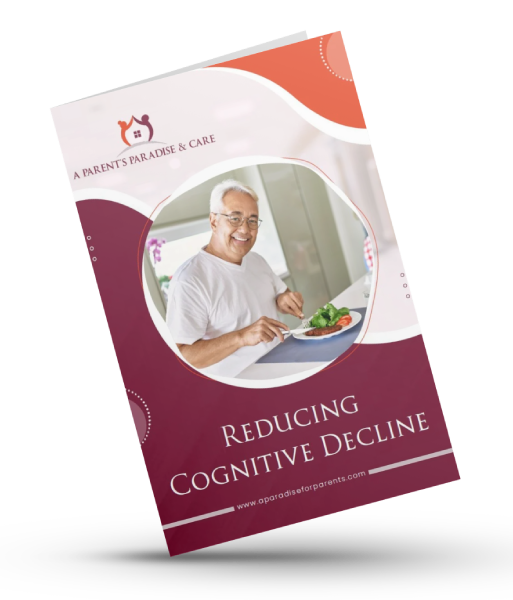Alzheimer’s disease is a brain neurodegenerative condition that is commonly known to affect a person’s memory. The care for Alzheimers is hard. Just because you know how to care for someone with Alzheimers, doesn’t mean you can do it easily. The cost can be very high for memory care (although we try to keep our prices lower). That’s why many people want to know how to care for Alzheimers patients at home. Hopefully this article can help.
Let’s start at the beginning. Initial symptoms can include:
- Memory loss
- Difficulty in organizing tasks
- Dates
- Time and place
- Difficulty in planning tasks, and
- Loss of vision.
Alzheimer’s disease is due to progressive brain cell loss. It can affect the memory and other brain functions. According to Dr. Barry Reisberg of the International Psychogeriatric Association, there are seven stages of Alzheimer’s disease. They start with no symptoms (which is commonly the pre-diagnosis part) Then they gradually show as worsening symptoms of forgetfulness. Later symptoms include an inability to respond to the environment and decline of motor functions.
Having a senior in your family diagnosed with Alzheimer’s disease can be life-altering. It not only affects the person diagnosed with it. The disease affects the entire family. It can affect the family physically, emotionally and financially. Arrangements should be made because care for Alzheimers should not just involve one family member.
You may want to look into Dr. Dale Bredesen’s Protocol for slowing down or even reversing Alzheimer’s disease. Although it’s not easy to stick with it, it’s definitely worth the effort. Dr. Bredesen has seen a lot of results with this research. The sooner you start on this the better.
There are dementia care homes for seniors available to assist the family, but in some cases, families choose to do home care. We also provide memory care services at our assisted living homes if you’re in the Surprise and Goodyear, Arizona area. Here are 5 ways to provide care for seniors with Alzheimer’s.
How to Care for Alzheimers Patients at Home
Create a Soothing Living Space for People with Alzheimer’s Disease
The conditions and cases for every individual diagnosed with Alzheimer’s disease can be different. Because of brain cell loss, the forgetfulness may be constant. However, their living requirements may differ. Seniors with this disease may easily get agitated, especially if they do not feel comfortable. In some cases, they may forget that they are in their own homes. Thus the feeling of confusion and agitation. Some individuals may be uncomfortable with clutter or furniture not arranged as they like. Others may not like music or loud sounds.
To care for Alzheimers, you will need to ensure that the person is comfortable. They should feel safe. You should create a soothing living space for them. True, taking care of a senior with Alzheimer’s may become challenging. You can work ahead of time and arrange the home to become a soothing and calming environment for them.
Familiar territory
Alzheimer’s disease can lead to forgetfulness of even the littlest of things. This includes where they live and their own room. In some cases, individuals with Alzheimer’s disease hold on to things and little memoirs they have had before they were diagnosed. Often they remember the old days. Let them keep these memoirs or arrange mementos in their rooms where they can see them often. That shows them you know how to care for someone with Alzheimers. It helps the room feel more familiar. You can also play music that they liked in their time, as long as it does not agitate them. Classical, relaxing and instrumental music can be good too.
In some cases, seniors may feel unsafe and overwhelmed when they are forced into a senior living facility. If the family can, they should try to take care of their loved one at home. When it becomes overwhelming, an assisted living home like ours may be the best option. That’s why we encourage family members to bring furniture, pictures and other familiar items when their loved one moves into our home. Being in a familiar environment can help keep the individual calm and relaxed.
Use the right words
Difficulty in planning, difficulty in organizing and difficulty in taking instructions are a few Alzheimer’s disease symptoms. This can cause communication rifts between the patient and the caregiver. As the caregiver, be sure to initiate the right communication and use the right words when speaking to them or giving them instructions. Be direct to the point and be patient when speaking with them.
To help your loved one with communication, try asking them questions where they only have to answer ‘yes’ or ‘no’. When giving them instructions, give them one by one. Oversee if they are able to perform the task properly. Be patient when communicating with them. Use simple and short words. Avoid long sentences or giving them several ideas at once. Be there to help them if they feel perplexed or challenged when performing a task.
Built-in socialization
Seniors with Alzheimer’s disease in the later stages can easily feel alone and isolated. Especially if they are starting to forget people, events and memories. The option of putting them in a senior facility with assistance and special care for Alzheimer’s can be a practical and good choice for them. However, family care is also a personal and effective approach where they will feel more like themselves. Socialization with other family members and regular conversations can help them feel welcomed and assured. Opting for a senior care facility can be an added socialization for them. They can socialize with other people of their age in a care home. That’s why we run assisted living residential homes instead of large facilities. Seniors in our homes have no choice but to interact with other residents. And of course with our caregivers.
You can use this opportunity to start a bonding time with other family members where they get to talk about anything. Or memories that they can still remember. This will allow them to take part in activities that the family is doing, such as family outings. Simple companionship will make them feel comfortable and secure.
Don’t argue with Alzheimer’s Disease
When caring for a senior with Alzheimer’s disease, always remember to be patient. Talk to them calmly and with respect. They may have an altered belief of their realities or even memories. Sometimes this can lead to miscommunications and conflicts that can affect you and other family members. Arguing with them or scolding them is not ideal. They may not understand what they have done.
It is best to talk to them calmly, understand why they did what they did and help them fix the situation. Arguing with them can only agitate them more and make them feel isolated, scared and unwelcome. Sit with them, talk to them and divert their attention to what caused the argument or problem.
A person diagnosed with Alzheimer’s disease will need the family’s support. Support must be there from the moment they are diagnosed up to the severe forgetfulness part of the disease. The family and the people taking care of them should practice utmost patience and understanding. Everyone must know that the disease is out of anyone’s control. Make the patient feel safe, understood and cared for. They should not feel scared and alone. Be patient with them and listen to their stories. Family support is extremely important.





